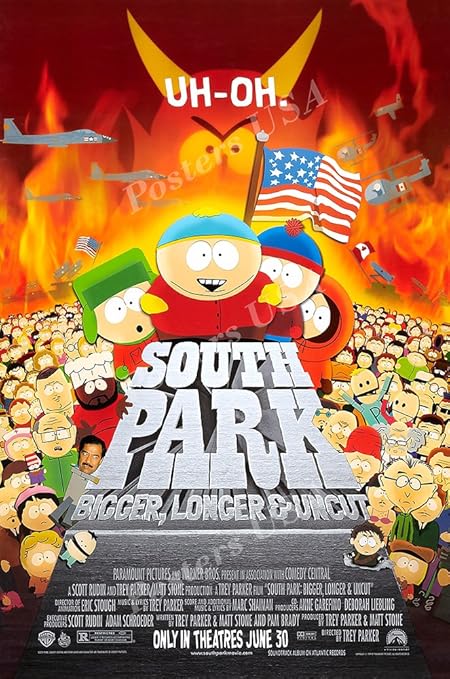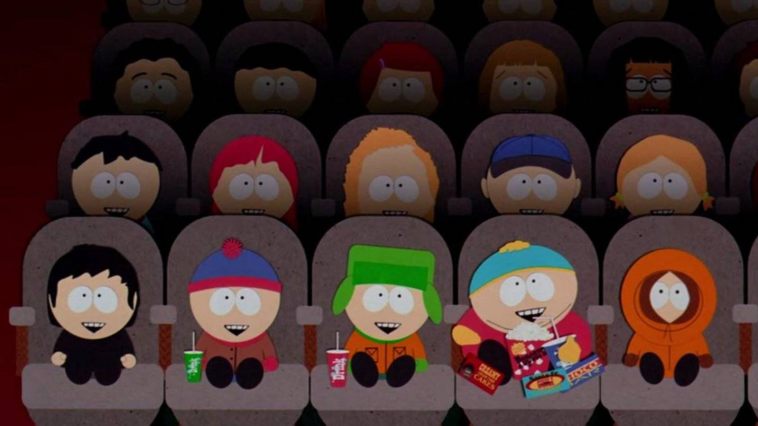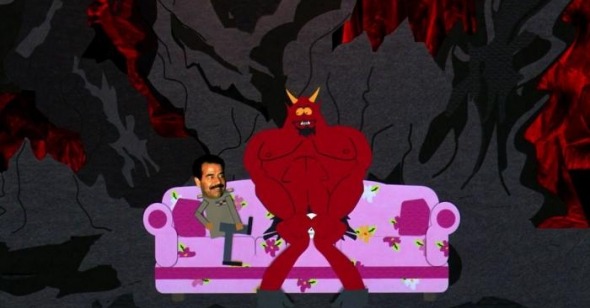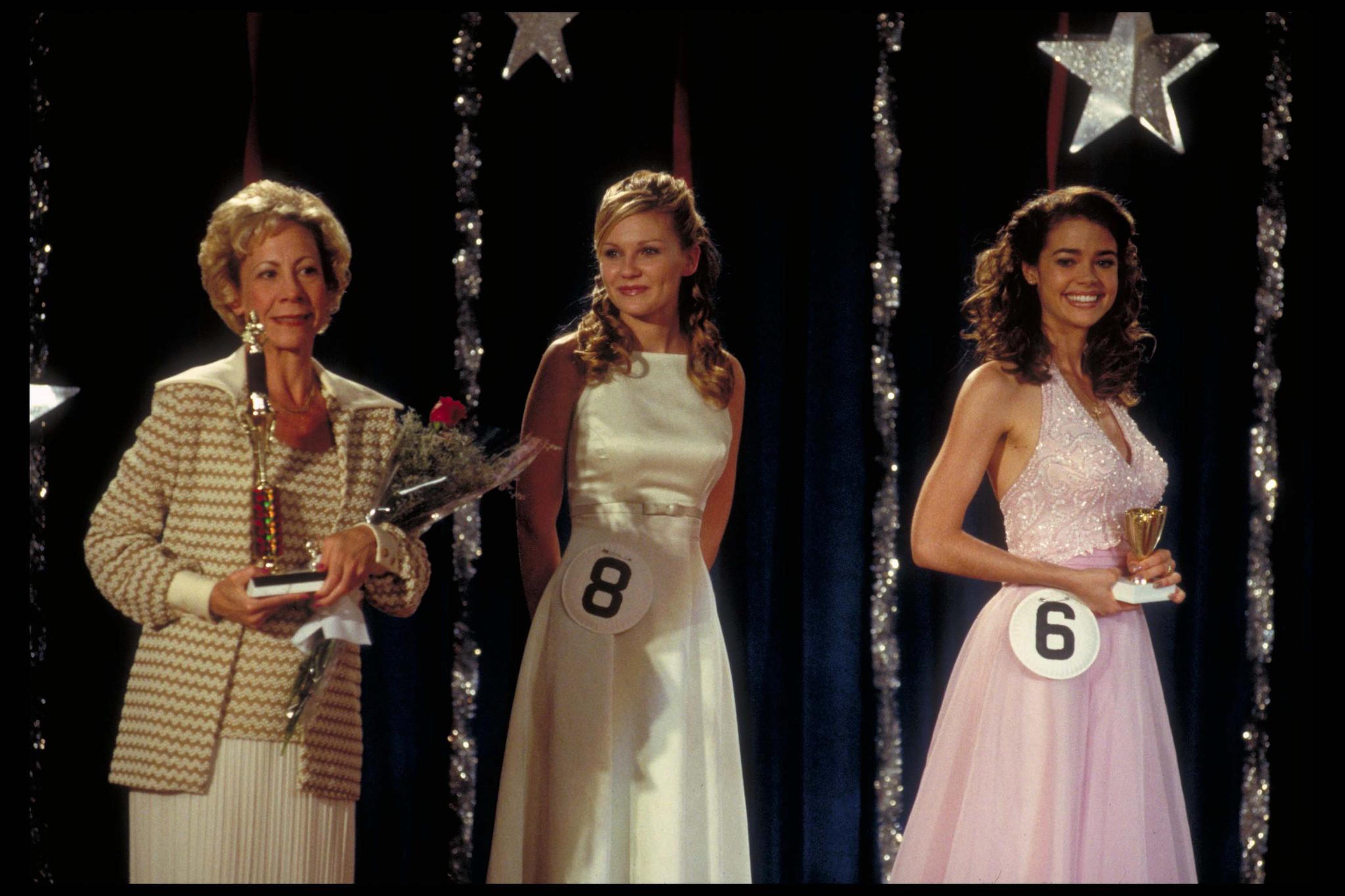And so we reached the 20th Century and as the year 2000 approached people frankly started to go a bit a bit nuts. There were those who were stressing about how they were going to take advantage of this once in a lifetime chance to party, while others were stressing about the apocalypse promised when all the computers went “what the fuck is this?” when the year on their operating system changed to 2000 and promptly stopped working.
While you either stocked up on champagne for your party or bottled water for your bunker, there was one subsection of society who took the cake in batty decisions on how they would bring in the new century. For there were those who’s goal it was to be the first parents to give birth in the 21st century. I’m no movie producer, but if there isn’t comedy potential in women trying desperately hold back a baby that wants to come out at 23:50 on the 31st of December or of rich families competing for the services of the most skilled Obstetrician in the same way Formula One teams hire the fastest tyre changer, then I don’t know what is.
Meanwhile at the cinema while I tried to pretend to myself that I wasn’t disappointed in the Phantom Menace, there were some cracking movies out this year that saw 90’s movies finishing strong. Once again I’ve struggled to choose between which three films I was going to gush over (It was touch and go whether Man on the Moon or Fightclub were going to make my third choice and then at the last minute neither did), and surprisingly it wasn’t Phantom Menace that made my WTF? moment (but I’m saving my prequel rant for later, oh don’t worry it’s coming 2002 is only three articles away).
South Park: Bigger, Longer and Uncut (director:Trey Parker)

Outraged by a new Terrance and Phillip’s films the parents of South Park start a campaign to ban smut in movies. Unaware to them, their crusade is fulfilling a prophecy that may allow Satan and Saddam Hussein to take over the world.
It’s easy to forget just how much of a phenomenon South Park was when it first appeared on TV in 1998. Merchandise for the show was everywhere and despite been an adult cartoon sparked a range of popular toys, even including cuddly versions “Mr Hankie the Christmas poo.”
Like many I was a massive fan of the first series, but found the second series a mixed bag and the humour forced at times. It was with a slight groan that I greeted a trailer in 1999 for a full length film, fearing that the series was already wearing out it’s welcome.
Fortunately, Trey Parker and Matt Stone focused on the real strengths of the show, holding back on the surreal aspects and concentrating on the social commentary and making the story epic and worthy of a movie by adding stirring musical numbers.
“Horrific, deplorable violence is okay, as long as people don’t say any naughty words!”
A common theme of the series has been the children trying to cope with the stupidity of adults, in particular their parents and teachers. Here the parents led by Kyle’s mother are outraged when they find their kids have discovered swearing after sneaking into a Philip and Terrance movie (a self parody of their own show that delights children and horrifies adults with it’s crude fart based humour). This crusade against the swearing leads to the arrest and sentencing to death of Terrance and Phillip and as a result a full on war with their Canada.
The idea of scapegoating Canada is a biting satire on 90’s parents avoiding the responsibility of their own shitty parenting. In the opening song the boy’s sing how “The movies teach us what our parents don’t have time to say.” While later the singing parents finish the Oscar nominated song Blame Canada with the line “We must blame them all and cause a fuss, before someone thinks of blaming us.” This is the same decade when every from Heavy Metal, Rap, Wrestling, computer games and to cartoons such as South Park were being blamed as corrupting influences on children. This issue was particularly timely as the Columbine massacre occurred just a few months before the films release, which again saw more blame not thrown at America’s gun culture but at the convenient target of popular culture.

The irony in the film is that while they are violently campaigning for the “good” of their children in public, they are leaving the kids unattended and allow them to get themselves in more danger. Kenny dies as always (trying to light a fart on fire, which is blamed on the film and not on the surgeons who accidentally replace his heart with a baked potato) and finds himself in hell, where Satan is planning to invade the surface world but who himself is trapped in an abusive relationship with Saddam Hussein. Meanwhile Stan, Kenny and Cartman try to rescue Terrance and Phillip and find themselves stuck on in the middle of a battlefield between US and Canadian forces.
As prevalent as the satire is, Southpark: Bigger, Longer and Uncut still has the vicious banter between the kids, with hilarious one liners and made even edgier with unrestrained use of four letter words. There is also all the delightfully unpolitical correctness of the show, with gags that would have 2019 sensibilities reaching for twitter in outrage. Even at the time hands went to mouths when in reply to the Liberal loving new character Gregory’s admonishment that he has made a sexist remark about the boys mothers been on their periods, teacher Mr Garrison shoots back “Sorry, I don’t trust anything that bleeds for five days and doesn’t die.”
The songs as well are first class and a fitting homage and parody of musicals. Aside from Blame Canada, there is the introduction to South Park life with “Mountain Town,” the weirdly touching “Up There,” sung by Satan on how he wants to experience the joys of rainbows and summer times, and a massive montage song in “La Resistance.” But the scene stealer is “Uncle Fucka,” the hilarious song in the Terrance and Phillip film, a profanity laced and incredibly catchy ditty (my mum admitted when she overheard it just once it she found herself singing “Shut your fucking face Uncle fucker,”) that delights the children with the hysterical result of them coming out of the cinema swearing.
South Park: Bigger, Longer, Uncut is a triumph of true adult animation, that is as clever as it is outrageous. In many ways the future success of the show was built on themes developed here. In true ironic fashion, Parker and Stone were criticised for the over use of profanity in the film while the violent scenes of death (admittedly animated) were given a pass, unintentionally echoing the point being made in the film about the public’s sense of priorities.

Drop Dead Gorgeous (director: Michael Patrick Jann)

A documentary team covering a small town beauty pageant discover more than they bargained for, as the contest is plagued by suspicious accidents and corruption.
Spoilers: If you haven’t seen Drop Dead Gorgeous, do so now before reading any further because I don’t want to ruin one of the funniest things I’ve ever seen in a film.
Do you ever have a laughing fit, so hard that you still remember it in vivid detail some twenty years later? And I’m not talking about watching Matadors getting gored, I’m talking about a scene in the already hilarious film Drop Dead Gorgeous. Anyone who has seen it knows already what I’m talking about. It’s a scene that just the memory of makes me smile as I write this, a scene so out of nowhere it’s amazing how anyone could think of it.
I can’t even describe why it’s even funny. But the scene of a bulimic beauty queen in a wheelchair and on a drip, been pushed around by a nurse as she lip synchs a performance of “Don’t Cry Out Loud,” had me in uncontrollable hysterics, with tears rolling down my face.
As I write this I just took a look at the review scores for this film and noticed that they are “mixed to negative”, to which I say a hardy “fuck off,” as I think this is one of the funniest films of the 90’s.
The scene is just one of many funny (well I think so) moments poking fun of the ridiculousness of modern beauty pageants. It’s done documentary style, with this particular pageant run by God thumping, all American Kirstie Allie, who it’s clear is pushing for her spoilt daughter Denise Richards to win, even if it means rigging the judges and murdering her biggest opponents. The biggest threat to her daughter’s challenge is Amber played by Kirsten Dunst, a warmhearted, hardworking girl with a talent for tap dancing and ambitions beyond the trailer park she lives in.

There are great performances all around. Kirstie Alley and Denise Richards are delightfully easy to hate as scheming, entitled rich mother and daughter, while Amber’s mother played by Ellen Barkin is hysterical as her good natured by still in her own way a pushy mum (she’s so obsessed by her daughter winning that when she’s thrown in the air by an explosion in a trailer park “accident” her first reaction is to protect amber’s tap shoes in her underwear). But it’s Allison Janey as Amber’s foul mouthed and sex hungry aunt who really shines, peppering the film with a no nonsense, sarcastic attitude (“She had a big ass then, she got a big ass now,” she responds when Alley brags her own pageant dress still fits).
The pageant contestants are a mix of oddballs featuring artistic types, and good natured dimwits. Standouts are an adorable, giggly turn from the late Brittany Murphy and a young Amy Adams as the flirty school hottie. It’s through all these characters we get the funniest moments, as they take part in the tacky, low rent ceremony. The talent portion is the highlight, with bird impressions, line dancing, a spoken word performance of Soylent Green, and the amazingly bad taste sight of Denise Richards performing “I love you baby” to a Jesus on a Cross.
I found Drop Dead Gorgeous funny as hell, with really dark comedy moments and wicked one liners. However it took a friend to introduce me to it and give it a try, as in common with most audiences in 1999 I was only vaguely aware of the film. Although the film flopped, it has since found a cult following and Allison Janey has claimed she gets more people talking to her about the film than her award winning role on West Wing.
1999 critics be damned there is a lot to recommend in this film particularly as it’s status as a “chick flick,” (and I really don’t mean that in a deriding sense). The characters in Drop Dead Gorgeous are predominately female, and their goals and motivations are refreshingly not set around scoring a dream guy (the only possible love interest is murdered off early on). Of the contestants only the vacuous, rich Leeman family seem to care about winning the pageant for it’s own sake. Others either recognise the silliness of the competition (Brittany Murphy falling into fits of laughter on stage at the farce is really funny) or are using it to get to perform their passions. Our lead Amber is proactively using the competition as a stepping stone to move away from her humble life, get to college and follow her dream of making a career as a journalist. When that doesn’t work out she manages to jump all over an opportunity in the end credits.
I really think Drop Dead Gorgeous deserves to be reappraised. It’s a smart, funny and sometimes hilarious script (for my dark sense of humour) and will always have a place in my heart for giving me one of the biggest laughs in my life.

Any Given Sunday (Director: Oliver Stone)

Al Pacino’s coaching of a struggling Miami Sharks is turned around by the emergence of a new star quarterback Jamie Foxx. However the rising star creates just as many problems both on and off the field.
Oh and this one I’m pparently wrong about as it has 52% approval on Rotten Tomatoes! Are my tastes really that way out?
As far as I can tell American Football coaches (I’m British so can’t call this “football”) get to yell a lot and make big, grandiose inspiring speeches. It therefore would be criminal if Al Pacino, the master of yelling and making big speeches, didn’t get to play at least one in his life. Pacino in his role as coach of the fictional Miami Sharks (of the also fictional AFFA league, as the NFL wouldn’t allow them to use their or their teams names) is pretty much Pacino in most of his movies by this point, all shouting and charisma which is still pretty great by most standards.
However while Pacino’s role as a underperforming coach, attacked from players, owners and wondering if the game is passing him by is crucial to the film it’s not the only story in Any Given Sunday. Oliver Stone had lofty ambitions in bringing in as many aspects of the daily life of the modern game. We meet the players, on the field, in their personal lives and in riotous locker room scenes. Some are in their prime on the field and in stardom and abusing that to their advantage, while others are broken down and living on borrowed times. Meanwhile far removed from the players there is the business side of the team, playing heartless politics with livelihood of their players.

If there is a central story at the centre of the web of arcs of self serving characters, it’s that of Jamie Foxx as quarterback “Steamin” Willie Beaman. Beaman becomes an overnight sensation (probably unrealistically quickly) when called off the bench and he starts to turn around the team’s fortunes. However the quick fame goes to his head, and his celebrity arrogance and tendency to change set plays starts to cause problems with his fellow players and coaching staff.
The best sport films are those which have themes beyond the simple idea of winning and losing, and in Any Given Sunday we see the American obsession as a typically Stone unsubtle metaphor for capitalism. Cameron Diaz as the ambitious owner who’d inherited the team from her father (who always reminds me of the persona Stephanine McMahon of WWE would come to adopt) is utterly ruthless and sees the players as a commodity. In a scene which would gain relevancy in later years in the real life game, she persuades the head physician to clear for playing duty the ageing star “The Shark” (played by real legend Lawrence Taylor) despite his life threatening injuries so they can squeeze one last season before cutting him. We see the commercialism, the players seduced by the lavish lifestyles and seemingly less concerned with the performance of the team and instead chasing their own personal statistics to meet their sponsorship bonuses.
There are many entertainingly memorable supporting characters, though few can be seen as likeable. Diaz shines as the driven but callous owner, reeking with confidence and sense of power as she walks without intimidation through a locker room of naked players. It’s a statement of her position over them as their owner, refusing to let her been a woman weaken her in the most sacred of male environments. John McGinley is a outspoken, sarcastic sports reporter and thorn in the side of Pacino. James Woods is suitably sleazy as the Physician covering up the players injuries, brought to task by Matthew Modine as his more scrupulous understudy who in turn starts to go down the same route.
Probably the most sympathetic figure is that of ageing quarterback “Cap” Rooney played by the all American figure of Dennis Quaid. Cap is the legend of the team, but riddled with injuries is being pushed aside by the rising Beaman. Cap seems ready to call it a day, but his bitchy wife is reluctant to give up the player’s wife status she so obviously loves and shames him and his falling status.
I enjoyed When Saturday Comes for it’s scope, it’s many storylines and the differing filming styles to the games , which are effectively presented with bone crunching closeups. It does have flaws. Many of the characters arcs don’t receive a satisfactory outcome. And despite it’s grim portrayal of the game for much of the two and a half hours, it does take a romanticised turn with a forced change of attitude from Beaman after been inspired by the examples of coach D’Amato and Cap.
If you’re a fan of sports movies then Any Given Sunday definitely should be on your “to watch” list. Even those with little understanding of the game should be able to pick up the themes of the film.

WTF? Blair Witch Project

No horror film has played havoc with my mind more than when I went to see The Blair Witch Project. Not because it scared me, but because the shaking and jolting of the camera gave me nausea which along with the close up of snot running down a woman’s face made me wanna vomit.
Don’t get me wrong, I admired the makers for producing a $60,000 film that drew in close to $250 million at the box office and the marketing campaign was a work of genius. This was the first film to utilise the internet as a promotion tool, creating a site that detailed the investigation into a film crew who went missing while investigating the local legend of the Blair Witch. It was so effective that there were those who for a time thought the found footage was of a real life disappearance.
“Okay, they’re-they’re in the woods…the camera keeps on moving…Uh, I think they’re, they’re looking for some witch or something, I-I don’t know, I wasn’t listening…nothing’s happening, nothing’s happening, something about a map, nothing’s happening, it’s over, a lot of people in the audience look pissed.” Brian on Family guy
The film was a phenomenon and the must see film of 1999. But while I appreciate the lengths that the crew went to making it (the director Daniel Myrick messed with his cast’s minds by leaving them isolated in the woods and depriving them of sleep and food), I was underwhelmed and bored by the endless arguments and screams of “oh my God, what’s that?” pointing off camera to something we couldn’t see felt like a ripoff (apparently the chase scene was supposed to reveal the Blair Witch but the difficulty of working the camera while running in the dark missed the chasing guy in costume).
As lauded for it’s originality as it was Blair Witch wasn’t the first found footage film. There was Cannibal Holocaust back in 1980 and Man Bites Dog in 1993, even just a few years before Blair Witch came out there was the TV movie Alien Abduction which caused even more controversy for confused viewers who thought they were watching something real.
Blair Witch maybe the most realistic and was committed to it’s concept. But it didn’t half put me off my popcorn.

Til Next Time
Dazza






